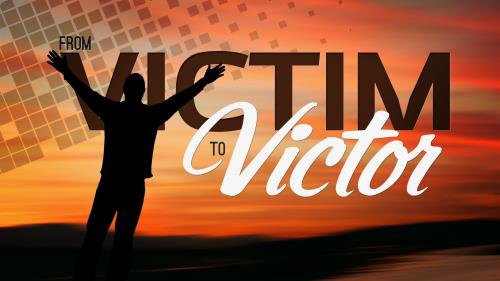-
You Are Not A Bird
Contributed by Jody Marsh on Sep 12, 2022 (message contributor)
Summary: “She did what she could.” This affirmation from Jesus gives us a way forward in a world where not everything is possible for us.
You Are Not a Bird
Scripture: Mark 14:1-9
Closing Hymn: 572 or 573
Great PowerPoint slides and sermon notes for the congregation to fill in are available. Email jaykaymarsh@yahoo.com to get them.
This sermon is from an article The November 2021 Adventist Review. It is condensed from a sermon preached at the Walla Walla University church on June 12, 2021, by Paul Dybdahl, during graduation weekend. Paul Dybdahl serves as professor of mission and New Testament at Walla Walla University in College Place, Washington.
I’ll start with a hard truth, but don’t be discouraged. There will be some encouragement from Jesus and some good news at the end.
We live in a society that actively fosters optimistic expectations. It’s socially acceptable (and even considered wise) to regularly inform people of their limitless potential. I’m especially reminded of this societal emphasis on affirmation every year at graduation time. If you browse the Internet for sample graduation speeches or products, you’ll find many examples of this unbridled optimism. Here are just two:
Example One: “I hope that all of us here today can take this personal accomplishment as an example of how anything is truly possible when we put our minds to it.”1
Example Two: “It is after your graduation that you spread your wings wide and fly out to explore the world around, in pursuit of your goals.”2
These are happy quotations, to be sure. But there is a problem. First, the bold claim that “anything is truly possible when we put our minds to it” is clearly and demonstrably false. And the second quotation? If you imagine that you will “spread your wings wide and fly,” brace yourself for some sad news. You may be fit, smart, hardworking, and persistent, but you will not fly, because you are not a bird.
In a culture that says, “You can do anything,” there is a hard truth that must be acknowledged. Humans are amazing, but there are some things we can’t do.
Our limitations are evident in several areas. First, we all have physical limitations. As a man in his 50s with bowlegs, I will never be able to give birth to a child or become an Olympic sprinter. Through diet, exercise, and training I may be able to improve my physical capabilities, but there are some thresholds I cannot cross. The same is true for all of us. We are differently abled physically, and we can’t do everything.
We also face mental limitations. Some of us quickly grasp math formulas but struggle to understand poetry. Some of us can learn languages easily but can’t play the piano by ear. Some of us read books, while others of us are better at reading people. Once again, we can study, learn, and improve, but we are differently abled mentally and emotionally.
We are further limited by our society. We may have the necessary abilities, but because of our age, gender, race, religion, appearance, or mistakes we’ve made in the past, society will close some doors of opportunity in front of us. It’s not fair, but that’s what happens in a broken world.
We even face spiritual and moral limitations. Scripture tells us that the followers of Jesus receive unique spiritual gifts, but these are distributed as the Holy Spirit determines. This means that some people will be able to serve God in ways that we can’t.3 Additionally, our moral convictions may not allow us to pursue certain lucrative careers.
Finally, the sad reality of life is that even our limited abilities will almost certainly diminish over time. Our aged selves can’t run as fast, work as long, or learn as easily as our younger selves could. In our later years society may view us as increasingly insignificant and obsolete. Disease and chronic pain may limit our activities and diminish our own sense of worth. So, time will tend to lengthen the list of things we can’t do.
This harsh reality hurts. Our pain is heightened when we compare ourselves with others who don’t seem to be facing the same limitations and constraints. Our anguish often turns to anger and resentment, then discouragement and despair. We may accuse God of being unfair. We may even give up. When we’re kept from doing something, we sometimes settle for doing nothing.
No, we are not birds, and we can’t do everything. So how should we respond? How should we live in a world like this? Jesus has an answer. It comes to us in a single sentence, tucked away in a rather famous Gospel story in Mark 14.
Bethany was a small town less than two miles from Jerusalem. Just days before His crucifixion, Jesus enjoyed a banquet there at the home of Simon the Leper. During the meal, a woman4 approached him with an alabaster jar. It contained pure nard; an exquisite perfume extracted from a plant that grew in the distant Himalayan region. She broke the jar and anointed Jesus with the perfume. It isn’t surprising that onlookers protested at the wastefulness. The perfume was worth tens of thousands of dollars! Shouldn’t the money have been used for the poor?

 Sermon Central
Sermon Central



